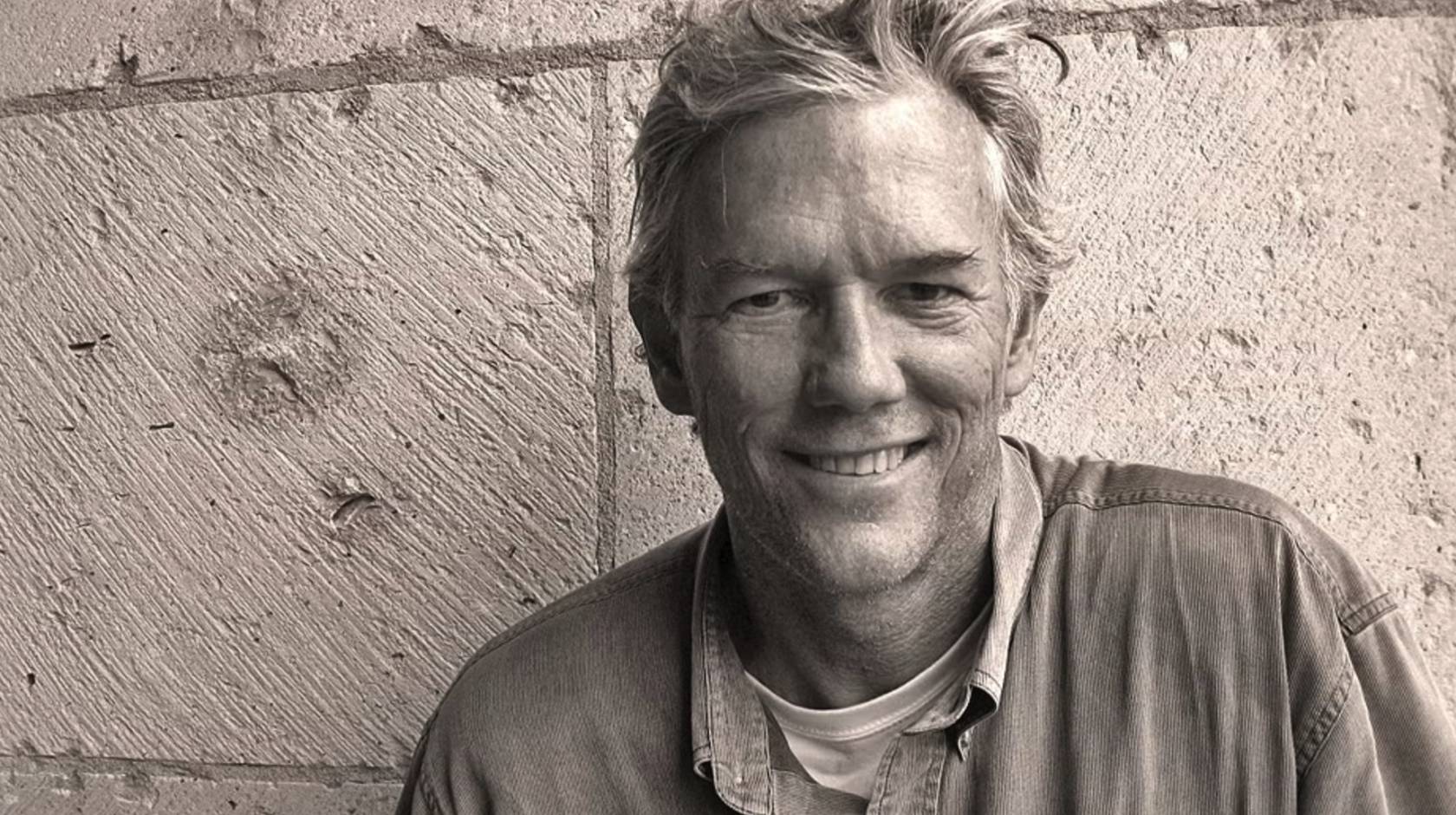Dan White, UC Santa Cruz

Pulitzer Prize-winning author William Finnegan (Cowell, ‘74, Literature), this year’s recipient of the Distinguished Humanities Undergraduate Alumni Award, spoke of the need for self-reinvention, crooked paths, career switches, and “changing your story” during his acceptance speech at this week’s Celebrating the Humanities event.
Finnegan, a staff writer at The New Yorker since 1987, reflected on a conversation he had on campus with Merrill College Provost and Associate Professor of History Aims McGuinness. “We were talking about the story you tell yourself about who you are and what you’re doing and how it eventually fails, usually, which can be painful—and you have to come up with a new story that works better.”
As a student at UC Santa Cruz in the early 1970s, Finnegan benefitted from Cowell College’s experimental approach to education.
Finnegan described how professors like Norman O. Brown, Harry Berger, and Tom Vogler gave him their time and serious attention.
“I had no business taking up their time, but they gave me so much,” he said. “I read Finnegans Wake … big books, and they would talk to me about them, which was wonderful for me.”
Though he admits to youthful arrogance—“I was ahead of myself in my vanity thinking I was smart”—he also sees that ego as necessary fuel for “dark times ahead.”
Among his classmates was future New Yorker writer Lawrence Weschler (Cowell ’74, Philosophy, Western Civilization).
Finnegan credited his professors for never discouraging his vaulting ambition while immersing him in texts ranging from Hesiod to Eldridge Cleaver.
“I wanted to write the Great American Novel,” he said. In his youth, Finnegan idolized James Joyce and John Steinbeck and longed to be a novelist. To gather material and life experience, he traveled widely.
His first literary effort came early—and was read by almost no one.
“I wrote my first novel as an undergraduate,’’ he said, speaking to the crowd at the Seymour Center. “It was inspired by my first girlfriend breaking up with me, and how despondent I felt. The book was huge, longhand, more than a thousand pages. I think it was read by one person. At least he said he read it.”
Despite his literary aspirations, Finnegan was in no hurry to publish. “The truth is, I was afraid of readers,” he admitted. “I didn’t try to get myself published for many years. Basic fear of rejection. Powerful force.”
A meandering path to The New Yorker
After graduating from UC Santa Cruz, Finnegan fictionalized his résumé to obscure his college degree. He got a job as a freight brakeman for the Southern Pacific Railroad in Watsonville. “I really loved that job,” he said. “I was taking notes, getting ready for my railroad novel, and saving up money.”
Years later he turned down an offer to publish his novel because he refused to listen to an editor’s demand that he remove the confusing technical jargon that cluttered the narrative, making the story almost incomprehensible to anyone who hadn’t worked on a railroad.
“I said absolutely not,” Finnegan said, smiling at his youthful overconfidence. “I said, ‘you can’t have it. And they didn’t want it.”
His twenties were part of what he described as an enjoyably “misspent” youth—though few would see it that way now. He surfed around the world, worked odd jobs, and slowly accumulated the lived experiences that would shape his voice as a writer. His trajectory was far from linear, shaped as much by idealism as by necessity.
One pivotal experience came while teaching English in a Black township outside Cape Town during apartheid. Students went on strike and tensions escalated. Government crackdowns turned more violent.
Seeing what was happening to his new friends and colleagues in the township, Finnegan turned away from the fiction he’d been writing. “The only thing that mattered was politics and power.”
That shift in focus led him toward immersive long-form narrative nonfiction. Influenced by writers like George Orwell and John McPhee, he began to reimagine himself as a nonfiction writer. With no formal training in journalism, he struggled to find his footing but began freelancing for The New Yorker in the 1980s, eventually joining the staff in 1987.
Over time, Finnegan developed a journalistic style rooted in deep immersion, nuance, and moral complexity. He has reported on civil wars in Somalia and South Sudan, written about rival skinhead gangs and a powerful drug cartel in Michoacán, and documented the lives of youths in four impoverished U.S. communities—New Haven, Connecticut; the Yakima Valley in Washington; San Augustine County, Texas; and Antelope Valley, California.
In her introductory remarks at Celebrating the Humanities, Dean Jasmine Alinder praised Finnegan’s impact: “He has dedicated his career to uncovering the complexities of global conflict, social justice, and personal identity through the written word. As a writer for The New Yorker, he has brought to light stories of systemic injustice, immigration, gang violence, and the human cost of political instability. His fearless storytelling is matched by a rare sensitivity—a gift for capturing lived experiences too often left out of mainstream narratives.”
Finnegan acknowledged the psychological toll of that work and the importance of going through this internal struggle. “My theory of the story—who the good guys were—would fall apart,” he said. “Here were the good guys massacring villagers. Or the protagonist turns out to have a conviction for child abuse. I just had kind of a nervous breakdown. I call it an aporia—a state of total confusion.”
Eventually, he began to let that confusion shape the story itself. “Should this be a piece about my confusion?” he began to ask himself. The line between journalism and memoir blurred. His Pulitzer Prize-winning memoir, Barbarian Days: A Surfing Life, emerged from that thoughtful interplay between introspection and reportage. It chronicled not just his lifelong relationship with surfing, but the emotional and political terrain he crossed along the way.
Now, decades after that unpublishable student novel, Finnegan is returning to the railroad. He’s under contract to write a memoir about his time as a brakeman. “This world I’m writing about—no one knows about it unless you were there.”
At the Seymour Center, Finnegan looked back on his many changes after graduating from UC Santa Cruz, and how a new story about himself began to take shape and harden into place after years of turnabouts leading to revelations.
“There was such a mismatch between the story I was telling myself in those days and how I understand myself now,” he reflected. “It’s kind of an ever-tending process of understanding yourself and what you are doing… and forgiving yourself for what you once failed to understand.”
In this way, Finnegan—one-time brakeman, surf bum, reporter, memoirist, moralist—stood before a new generation at UC Santa Cruz, offering not a blueprint for success, but something better: permission to get lost, to change one’s course, and to trust the long story.

